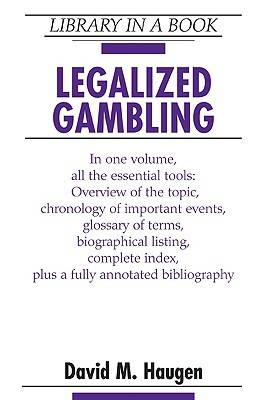Library in a Book
3 total works
Despite being the largest minority in the United States - a minority that anyone can join at any time in one's life - those with disabilities have traditionally remained a hidden minority. From the institutionalization of the handicapped for centuries in the United States to President Franklin Delano Roosevelt's concealment of his battle with polio, disabilities have often been stigmatized as private struggles. However, the successes of civil rights movements rallied disabled Americans and their supporters to campaign for acceptance of disabilities and for equal protection under law. ""Rights of the Disabled"" presents an objective overview of the history of this topic and opinions surrounding it, ranging from the formation of the League of the Physically Handicapped in 1935 to current efforts to enhance and modify the Americans with Disabilities Act. Contemporary case studies such as Barden v. Sacramento and documents such as The Rehabilitation Act of 1973 provide multiple perspectives and decisions surrounding the issue while also plotting a course for the future of legislative action pertaining to rights of the disabled. A comprehensive and up-to-date overview essay, capsule biographies, a large annotated bibliography, a chronology of significant events, organization and agency listings, and a glossary provide helpful information for readers interested in this controversial topic. Coverage includes: the resources available to those with disabilities; how the ADA has been impacted by recent legislation; accessible public transportation; how the federal government defines disabilities; and, prosecution of crimes against the disabled and more.
The casino boom in the 1980s and 1990s brought national attention to legalized gambling throughout the United States. Whereas advocates for the rapidly growing gaming industry contend that gambling will revitalize local economies with more jobs, tourism, and tax money for the host communities, others claim that much of that tax money rarely reaches the majority of community residents and, instead, brings a higher rate of crime, violence, and bankruptcy, not to mention encourages compulsive gambling. Because casinos are still being built and lottery jackpots are continuing to grow, the debates over legalized gambling persist in American culture. Communities as well as policymakers remain polarized as to the benefits and costs of gambling. Can an industry that thrives on the addictions of residents be ethically sound? Is compulsive gambling a serious problem? Does legalized gambling aid or harm host communities? ""Legalized Gambling"" addresses these controversies by examining America's historical love/hate relationship with gambling. This in-depth examination serves as an aid to students who are researching this issue, as well as other members of the public interested in the history and controversies of legalized gambling. Furthermore, the resource sections make this book a useful tool for teachers and librarians. Given the nation's continuing fascination with gambling, ""Legalized Gambling"" will capitalize on public interest and reveal political, economic, and moral complexities of the issue that otherwise may not be apparent.


